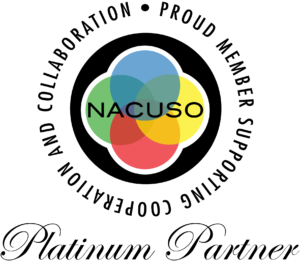N O T I C E
November 2025: Proj# 65507 & 65552 are currently in QC testing.
August 11, 2025: The technical teams met and decided that it was actually going to be easier than expected to add a new configuration flag so that this feature could be activated optionally by CU, adding just another 100 or so hours to the project. A spec was written up and the project has been reassigned to programmers. There is no ETA yet for release but likely not until sometime next spring.
June 19, 2025: At the 2025 Leadership Conference, Geoff Johnson reiterated that we still plan to implement this change as soon as we can complete the QC testing. Please be clear that this was NOT designed to be optional. If we implement it, everyone will get it, and no one can opt out. Creating a configuration flag and allowing the system to work both ways would require us to go back to the drawing board and recode, and would require double the testing resources. We will of course give everyone plenty of notice when a targeted release date is finally determined.
View the slide from the 2025 Leadership Conference
June 3, 2025: The programming teams recently had a nice technical breakthrough, which means we are much further along than anticipated with this project. Although the CFPB has changed its tune a bit of late, we still plan to move forward toward implementation. And as a reminder, this is an all or nothing proposition: if implemented, the changes will mean that if we did not use negative balance limits or ODP when authorizing the transaction, we will not charge any fees when the item comes in, even if there are insufficient funds at that time. Release date is still TBD. Project #s are 65507 and 65552.
February 5, 2025: Development is well underway on the software project mentioned above. Watch this page for updates and use the resources below to learn about actions you can take now.
December 12, 2024: Based on this week’s announcement from the NCUA , we now have a black-and-white path forward for changing how CU*BASE assesses NSF and ANR fees, specifically related to the so-called “APSN” (approved positive, settled negative) transactions.
We are currently working on compiling information to be posted on this page during the week of December 16th. This will review and expand on all of the information and recommendations we’ve put forward to date, along with an overview of the software changes we are now planning to make.
Our research showed that the proposed adjustments will require about 900 hours of development and testing work. The technical teams are meeting now to determine what other projects will need to be pushed off the plate while we tackle this work, and what any potential delays might look like. We have no target ETA at this time, but are escalating as a top priority and will use this Kitchen page to give periodic updates on our progress.
In the meantime, we are also working on a best-effort Query/report that should be able to identify at least the bulk of these “APSN” transactions, and a technique for getting this list into our credit unions’ hands for those who wish to proactively refund fees manually. Information on both the development project and this manual analysis/refund method will be posted on this Kitchen page as soon as we fine-tune the details.
December 17, 2024: Please note that the Query/report mentioned above is not available in real time and can look back no further than the previous 30 days. Another factor is the time lag between the original approval and when the transaction eventually posts. The technique being used for this “best-effort” report will be slightly different from the one eventually used in the program enhancements, due to additional data elements we will need to capture to more consistently link the approval and final posted transaction. While this is not guaranteed to identify every potential APSN fee instance, if run consistently this report should allow for good-faith review and refunding of fees that are likely the result of an APSN scenario.
Resources
Updated: March 4, 2025
Credit Union Strategies in Responding to NCUA Letter 3-CU-24
Announcing a New Weekly Best-effort Report for Refunding Potential APSN Fees
NEW! ASPN Reports Weekly Report Changing to Daily
Presentation from the Conversation on ANR/NSF Fees event held on January 17, 2025
Looking for help analyzing your ANR/NSF Fee Income? Contact the Asterisk Intelligence team!
Tools for Other Fee Income Opportunities using CU*BASE Tools
Understanding CU*BASE Automated Non-Returns (ANR)
FAQs
Updated: August 14, 2025
- Q: What exactly will we see once the software project is done?
- A: If you activate the new waiver, the system will no longer charge NSF or ANR fees on a posted item unless the original authorization did use ANR (courtesy pay) limits and/or ODP (balances from other account) to approve the request.
- Q: Is it possible to extend the standard holds days for debit card transactions?
- A: Yes, this is a setting at the individual BIN level. Contact the Cards and Payments team if you would like to make an adjustment.















